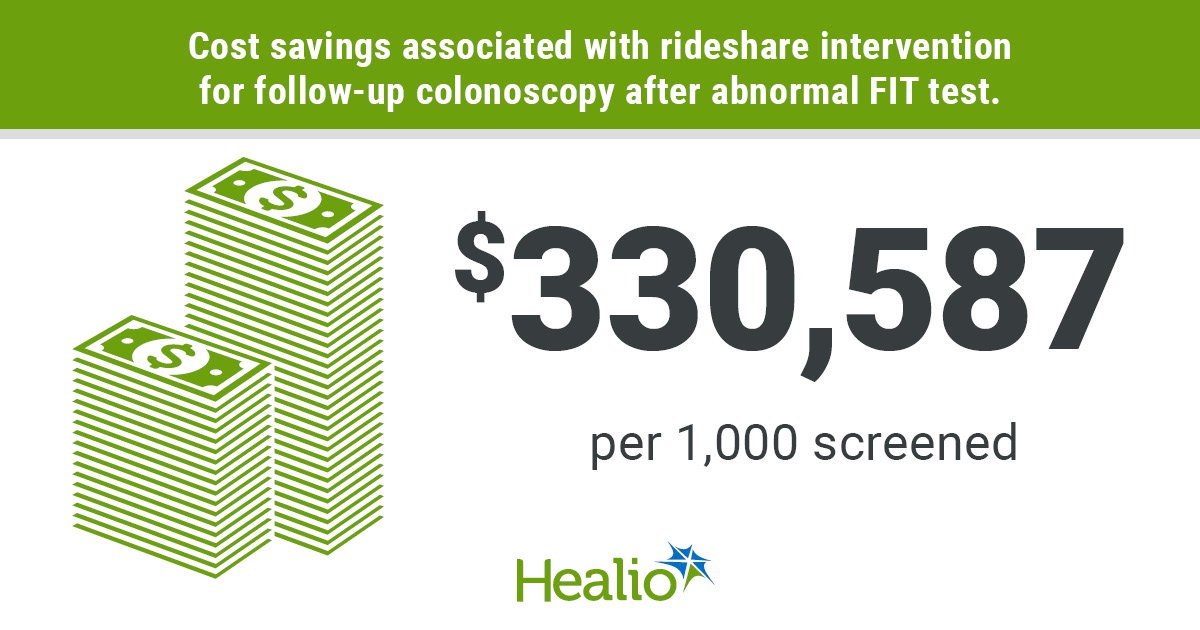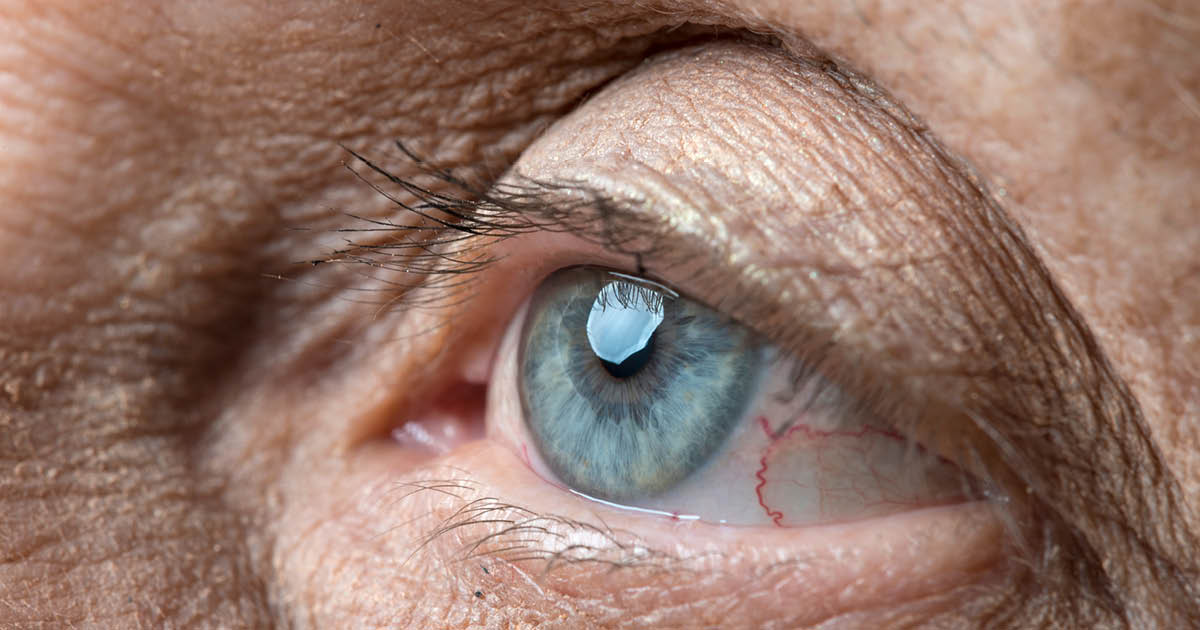October 06, 2025
3 min read
Key takeaways:
- A $100 rideshare starting at age 45 that doubled colonoscopy completion from 35% to 70% would reduce CRC cases by 26.3% and deaths by 32.9%.
- The intervention would cost $43,308 over a lifetime, but save $330,587.
A rideshare intervention could be a cost-effective way to improve colonoscopy completion among individuals with abnormal fecal immunochemical test results, according to research published in JAMA Network Open.
The intervention was cost saving up to $100 per ride, owing to the combined outcome of early cancer detection and cancer prevention. Issaka said the rideshare intervention was projected to still yield savings at costs up to $498 per ride.

Data were derived from Issaka RB, et al. JAMA Netw Open. 2025;doi:10.1001/jamanetworkopen.2025.30515.

Rachel B. Issaka
“Rideshare is a potentially scalable intervention that could lead to greater colonoscopy completion in patients with abnormal FIT results. Follow-up colonoscopy in this population is critical for cancer prevention or detection,” Rachel B. Issaka, MD, MAS, associate professor and director of the population health colorectal cancer screening program at Fred Hutch Cancer Center and University of Washington School of Medicine, told Healio.
“Health care systems should re-evaluate and modify policies that prohibit use of rideshare after sedation, particularly patients who lack social support and resources to ensure follow-up.”
Endoscopy suites traditionally have required patients have an accompanying chaperone or transportation for procedures requiring sedation, including colonoscopy.
“Our prior work showed that in these settings, patients who would have otherwise skipped colonoscopy, complete the procedure when they are offered a rideshare option,” Issaka said. “Patients and providers reported that rideshare was safe, acceptable and feasible to use.”
Issaka and colleagues used the CRC-Simulated Population Model for Incidence and Natural History microsimulation model to determine outcomes, including colonoscopy completion, and cost-effectiveness of providing a rideshare intervention to patients with abnormal FIT results. Rideshare costs of $40 and $100 were included in the analysis.
The researchers simulated four single-aged cohorts of 10 million individuals without cancer aged 45, 55, 65 or 70 years who participated in yearly FIT screening until age 76, as well as a lifetime time horizon starting on January 1, 2024, starting at patients’ cohort age and continuing until death.
The baseline assumption was that 35% would complete a follow-up colonoscopy before the intervention.
Number of CRC cases, deaths, life-years gained after 1,000 people screened and costs related to completion of a colonoscopy after an abnormal FIT result served as outcomes.
Results showed that for a screening population of patients aged 45 years, a $40 rideshare intervention that increased completion of colonoscopy from 35% to 50% was linked to a decrease in CRC cases by 14.4% (35.6 cases vs. 41.6 cases per 1,000) compared with no intervention. It also would reduce CRC deaths by 18.5% (11.9 vs. 14.6 cases per 1,000), yielding 13.4 life-years gained per 1,000.
An intervention that doubled completion of colonoscopy from 35% to 70% was linked to a 26.3% decrease in CRC cases (30.7 vs. 41.6 cases per 1,000) as well as a 32.9% reduction in CRC deaths (9.8 vs. 14.6 cases per 1,000), resulting in 24.9 life-years gained per 1,000.
Results also showed that at $40 per ride, a rideshare starting at age 45 years that increased colonoscopy completion from 35% to 50% was linked to cost savings of $204,640 per 1,000 with a direct lifetime cost of $8,564 per 1,000. Doubling of colonoscopy completion from 35% to 75% correlated with savings and a direct lifetime cost of $356,572 and $17,323, respectively.
Similarly, a ride that cost $100 and increased colonoscopy completion from 35% to 50% in this population was linked to saving $191,794 per 1,000, with a direct lifetime cost of $21,410 per 1,000. Doubling colonoscopy completion increased those savings and lifetime costs to $330,587 and $43,308, respectively.
“We found that rides could cost as much as $498 per ride and remain cost-saving,” Issaka said. “This cost, while it might seem high on face value, is modest in the context of the cost of cancer treatment on patients, caregivers and health plans.”
Issaka noted that her research team recently received funding to assess interventions for improving follow-up colonoscopy, which will include evaluation of the rideshare intervention in a pragmatic, randomized controlled trial.
“This study found that a rideshare intervention is cost-saving because it allows detection of cancer precursors or cancer at its earliest stage when treatment is cheaper than it would be for advanced stage cancer,” she added.
For more information:
Rachel Issaka, MD, MAS, can be reached at rissaka@fredhutch.org.










